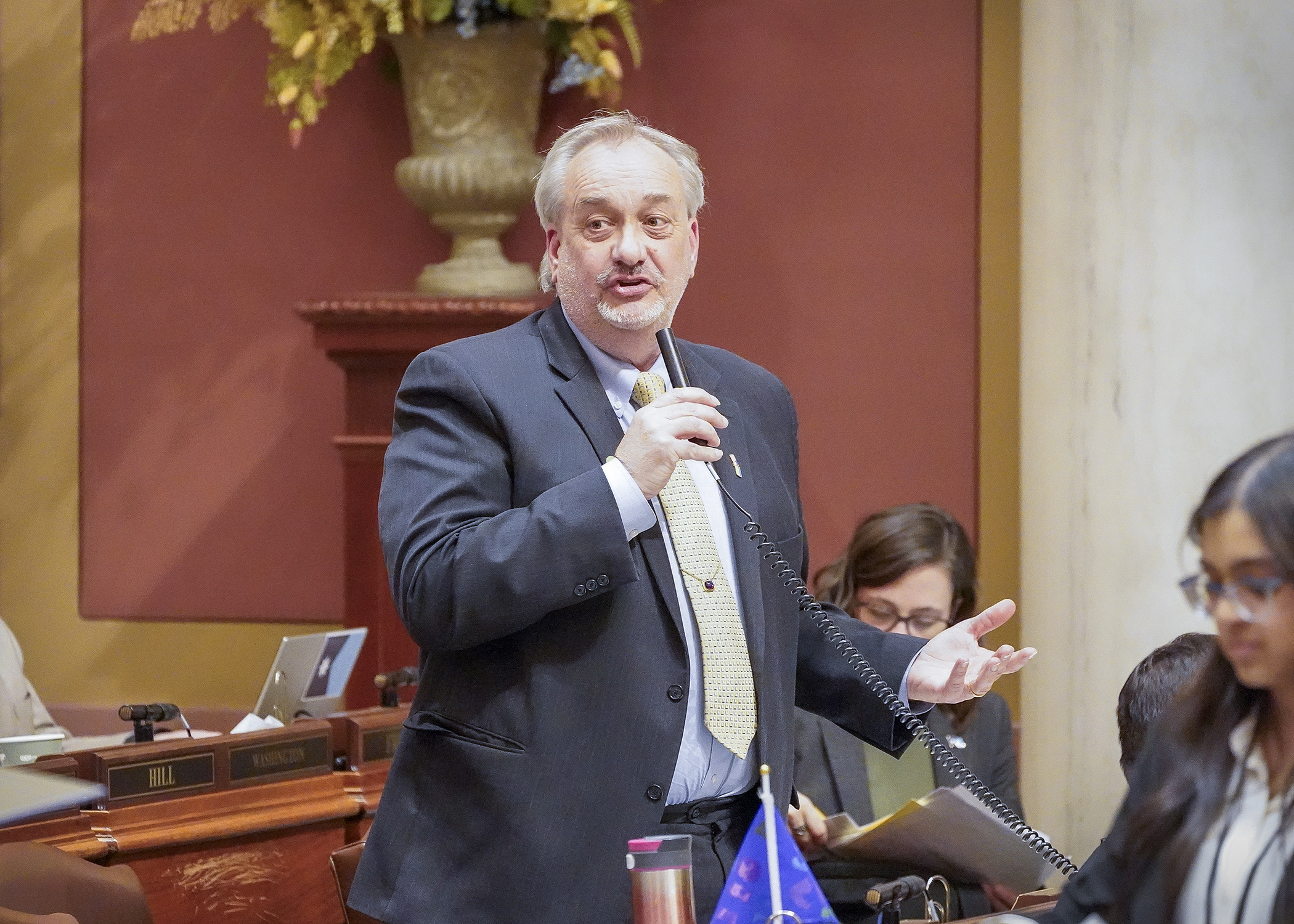Local control over wetlands roils waters as House passes environment policy bill

Preparing the way for digital licenses, distinguishing between native fish and invasive species, strengthening manure management and setting up barriers to a possible invasion of feral pigs are a few provisions included in a relatively technical environment and natural resources policy bill.
Sponsored by Rep. Rick Hansen (DFL-South St. Paul), HF2774/SF2904* was passed, as amended, 72-58 by the House Monday. It now heads back to the Senate, which passed it 51-16 almost a year ago.
“SF2904 is a mid-session policy bill with a variety of provisions on environmental policy that we thought we could find fairly common agreement on,” Hansen said. “It’s not that exciting, but it’s very important.”
Much of the bill sets the stage for digital licenses for outdoor activities like hunting, fishing and snowmobiling by removing references to signed documents, display stickers and hunting tags.
It also modifies language so that native rough fish — fish not always prized by anglers — would be protected while invasive species are not. It’s a first-in-the-nation definition of rough fish that shows the state values creatures that have been here for eons, Hansen said.
Many provisions impact the Board of Water and Soil Resources with technical and definitional updates to existing law. Rep. Josh Heintzeman (R-Nisswa) offered a couple amendments addressing the board’s jurisdiction.
One defining waters that aren’t public with public value was adopted. The was included in response to the recent U.S. Supreme Court decision Sacket v. EPA that narrowed the scope of the Clean Water Act. The bill aims to bring the state to the same level of protection in headwater areas that had been in place prior to the Supreme Court case.
An amendment to eliminate provisions that would give the board authority over buffer zones in some cases failed.
Republicans argue that local control is working as more than 95% of landowners comply with buffer zone regulations to reduce runoff.
“Here comes the heavy hand of government again,” Heintzeman said. “[This amendment] keeps local people working with their landowners rather than some bureaucrat at some office in St. Paul.”
Related Articles
Search Session Daily
Advanced Search OptionsPriority Dailies
Speaker Emerita Melissa Hortman, husband killed in attack
By HPIS Staff House Speaker Emerita Melissa Hortman (DFL-Brooklyn Park) and her husband, Mark, were fatally shot in their home early Saturday morning.
Gov. Tim Walz announced the news dur...
House Speaker Emerita Melissa Hortman (DFL-Brooklyn Park) and her husband, Mark, were fatally shot in their home early Saturday morning.
Gov. Tim Walz announced the news dur...
Lawmakers deliver budget bills to governor's desk in one-day special session
By Mike Cook About that talk of needing all 21 hours left in a legislative day to complete a special session?
House members were more than up to the challenge Monday. Beginning at 10 a.m...
About that talk of needing all 21 hours left in a legislative day to complete a special session?
House members were more than up to the challenge Monday. Beginning at 10 a.m...